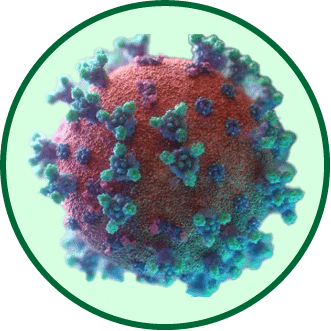Exercise for Cardiovascular Strength: Your Comprehensive How-To Guide
Introduction:
In the realm of health, cardiovascular strength isn't just about the ability to run fast or lift heavy weights; it's a pivotal component that dictates the overall wellness and longevity of an individual. A strong heart and healthy vascular system improve every aspect of life, from increased energy levels to a reduced risk of chronic disease. This comprehensive guide will delve into the importance of exercise for cardiovascular health, offering a detailed how-to strategy for those looking to enhance their heart's strength through physical activity.
1. Cardiovascular Health: A Cornerstone of Wellness
- Understanding Cardiovascular Health: A brief explanation of the cardiovascular system and why its health is crucial for bodily functions and overall health.
- The Heart of the Matter: Discussing the role of the heart, blood vessels, and blood in maintaining life and health.
- Impact of Cardiovascular Strength on Daily Life: How a strong cardiovascular system positively affects energy levels, mood, and overall quality of life.
- Keywords: cardiovascular health, heart, blood vessels, quality of life, wellness.
2. The Science Behind Exercise and Heart Health
- The Heart as a Muscle: Explaining how, like other muscles, the heart strengthens and becomes more efficient when exercised.
- Exercise and Its Effects on Heart Health: Overview of how physical activity improves cardiovascular health, including lowered blood pressure, improved cholesterol levels, and enhanced heart function.
- The Risk Reduction Factor: Discussing how regular exercise reduces the risk of heart disease, stroke, and other cardiovascular ailments.
- Keywords: exercise, heart health, blood pressure, cholesterol, risk reduction.
3. Getting Started: Cardiovascular Exercises
- Aerobic Exercises: Detailing activities like brisk walking, running, swimming, and cycling, and how they boost heart rate and provide cardiovascular benefits.
- Resistance Training: How moderate resistance training complements aerobic exercise in building a healthy heart.
- Flexibility and Balance: Discussing the role of yoga, tai chi, and similar activities in promoting heart health.
- Keywords: aerobic exercises, resistance training, flexibility, balance, yoga, tai chi.
4. Creating a Balanced Exercise Routine
- Frequency, Intensity, Time, and Type (FITT): A guide on how to use the FITT principle to create a balanced, heart-healthy exercise program.
- Variety is Key: Explaining the importance of incorporating various forms of exercise to keep the routine engaging and effective.
- Rest and Recovery: The role of rest periods in preventing over-exertion and supporting the body's natural healing processes.
- Keywords: FITT, exercise routine, variety, rest, recovery.
5. Safety First: Exercising for Heart Health
- Consulting Healthcare Providers: The importance of getting a health check-up before starting any new exercise program, especially for individuals with existing health conditions or those who've been inactive.
- Listening to Your Body: Learning to recognize the body's signals to avoid over-exertion, which can be counterproductive to heart health.
- Staying Hydrated and Proper Nutrition: The role of water and balanced nutrition in supporting a healthy exercise routine.
- Keywords: safety, healthcare providers, body awareness, hydration, nutrition.
6. Beyond Exercise: Holistic Approaches to Cardiovascular Health
- Stress Management: Techniques like meditation and deep breathing that reduce stress, benefiting cardiovascular health.
- Sleep Importance: Discussing how quality sleep is essential for heart health.
- Healthy Eating: How a balanced diet rich in fruits, vegetables, whole grains, and lean proteins supports cardiovascular health.
- Keywords: stress management, sleep, healthy eating, holistic approaches.
Conclusion:
Building cardiovascular strength through exercise is a cornerstone of holistic health and wellness. By engaging in a balanced routine that includes aerobic exercise, resistance training, and flexibility activities, individuals can significantly enhance their heart health. However, it's imperative to approach this journey safely — consulting with healthcare providers, listening to one's body, and supporting physical activity with proper nutrition and adequate rest. Remember, the journey to improved cardiovascular health is a marathon, not a sprint; gradual, consistent steps will lead to profound, lasting benefits.
(Note: This article is intended for informational purposes only and does not constitute medical advice. Always consult with a healthcare professional before starting any new fitness program.)
Keywords: cardiovascular strength, exercise, heart health, aerobic exercises, resistance training, safety, holistic approaches, wellness, FITT, stress management.
